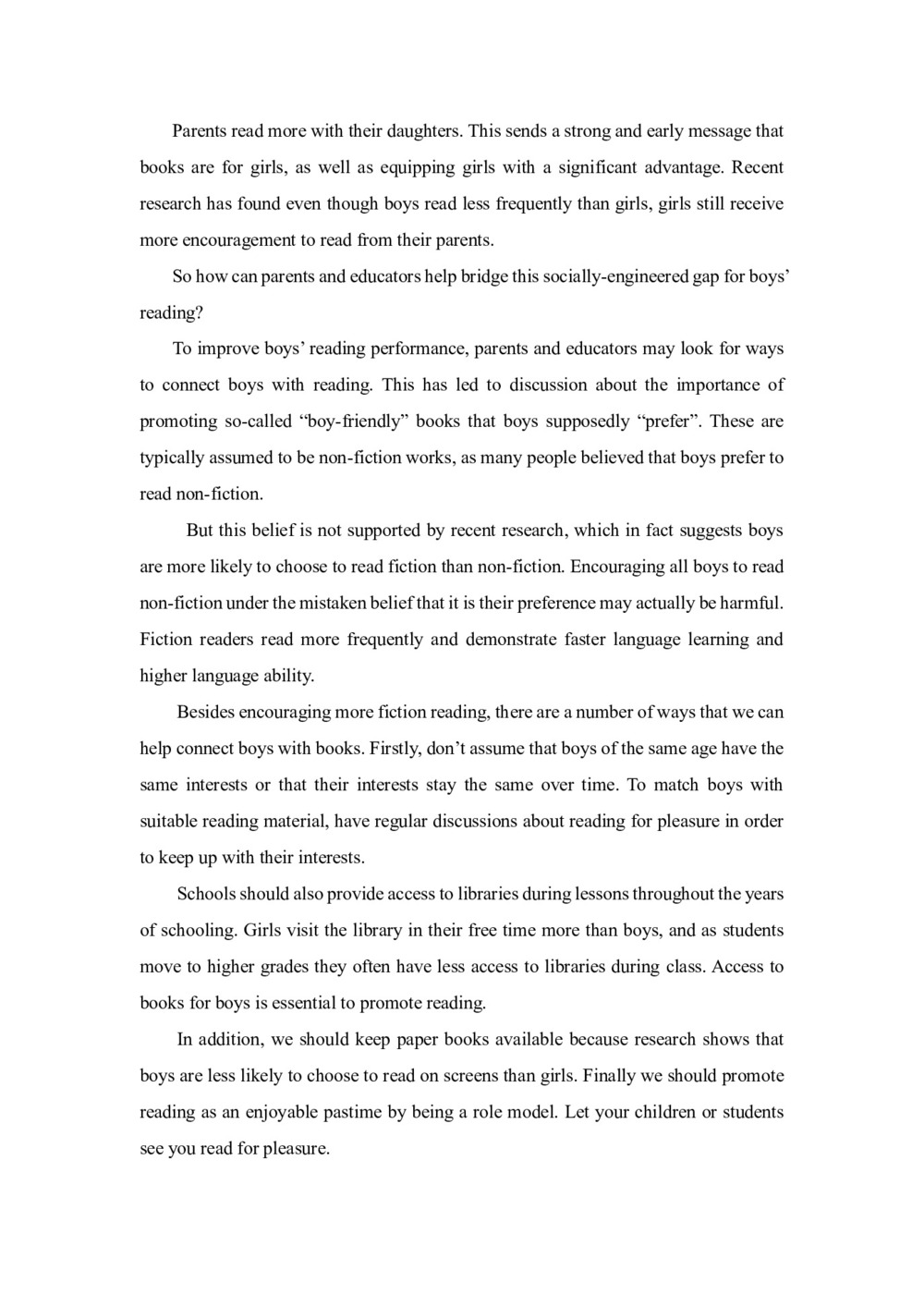
Parents read more with their daughters. This sends a strong and early message that books are for girls, as well as equipping girls with a significant advantage. Recent research has found even though boys read less frequently than girls, girls still receive more encouragement to read from their parents.
So how can parents and educators help bridge this socially-engineered gap for boys' reading?
To improve boys' reading performance, parents and educators may look for ways to connect boys with reading. This has led to discussion about the importance of promoting so-called "boy-friendly" books that boys supposedly "prefer". These are typically assumed to be non-fiction works, as many people believed that boys prefer to read non-fiction.
But this belief is not supported by recent research, which in fact suggests boys are more likely to choose to read fiction than non-fiction. Encouraging all boys to read non-fiction under the mistaken belief that it is their preference may actually be harmful. Fiction readers read more frequently and demonstrate faster language learning and higher language ability.
Besides encouraging more fiction reading, there are a number of ways that we can help connect boys with books. Firstly, don't assume that boys of the same age have the same interests or that their interests stay the same over time. To match boys with suitable reading material, have regular discussions about reading for pleasure in order to keep up with their interests.
Schools should also provide access to libraries during lessons throughout the years of schooling. Girls visit the library in their free time more than boys, and as students move to higher grades they often have less access to libraries during class. Access to books for boys is essential to promote reading.
In addition, we should keep paper books available because research shows that boys are less likely to choose to read on screens than girls. Finally we should promote reading as an enjoyable pastime by being a role model. Let your children or students see you read for pleasure.
-
相关试卷下载
- 12018--2019学年人教版必修三Unit 1 Festivals around the world learning about language课时作业(1)
- 22018--2019学年人教版必修三Unit 1 Festivals around the world learning about language课时作业(6)
- 32018--2019学年人教版必修三Unit 1 Festivals around the world learning about language课时作业(5)
- 42018--2019学年人教版必修三Unit 1 Festivals around the world learning about language课时作业(9)
- 52018--2019学年人教版必修三Unit 1 Festivals around the world learning about language课时作业(4)
- 62018--2019学年人教版必修三Unit 1 Festivals around the world learning about language课时作业(2)
- 72018--2019学年人教版必修三Unit 1 Festivals around the world learning about language课时作业(7)
- 82018--2019学年人教版必修三Unit 1 Festivals around the world learning about language课时作业(8)
- 92018--2019学年人教版必修三Unit 1 Festivals around the world learning about language课时作业(10)